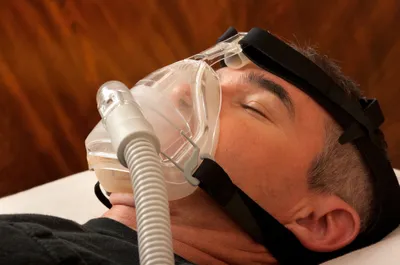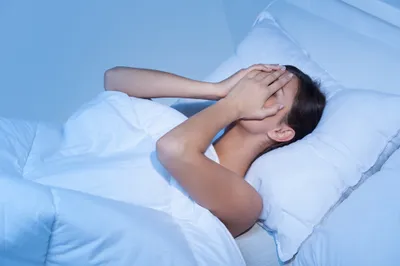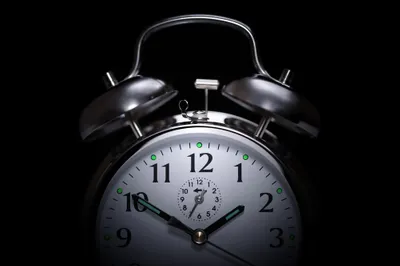Most of us manage to function on far less than eight hours of sleep per night. Health experts tell us that lack of shut-eye can do a lot of harm, particularly if we already suffer from certain health issues. However, despite the recent British study published by Neurology, the Official Journal of the American Academy of Neurology, too much sleep (or more than 8-hours a night) has been linked to an increased risk of stroke of up to 46-percent. Still, there are times when a little extra snoozing is the just what the doctor ordered…
1. During Pregnancy
According to research from the National Sleep Foundation, 78-percent of all expecting moms feel exhausted when pregnant—and for good reason. During the first trimester, a good majority of pregnancies are fraught with nausea, sprinting to the bathroom with morning (or all day) sickness, and the general anxiety and excitement of being pregnant present to disturb your regular sleep schedule.
And it won’t be better during the second and third trimesters when fetal movement and pressure, increased progesterone (which is linked to sleep disturbance), back pain, and restless legs syndrome (RLS) are common. So don’t feel guilty about stealing an afternoon nap to increase your daily hours of shut-eye.
2. You Have Sleep Apnea
According to the latest statistics from the National Heart, Lung, and Blood Institute, more than 12- million Americans suffer from sleep apnea, a condition that causes the cessation of breath during sleep up to hundreds of times per night. Obstructive sleep apnea (or OSA), in particular, completely or partially blocks the upper airway during sleep, causing shallow breathing, irregular heart beat, jarring gasps, snorts, or total body jerks that disturb a quality night of sleep.
Understandably, as you deal with sleep apnea, you’re robbed of thousands of hours of lost sleep and you’re put at risk for several chronic health conditions—including cardiovascular disease, high blood pressure, diabetes, obesity, and stroke. Start by speaking with your doctor to be diagnosed with sleep apnea so he or she can recommend treatment options (i.e., a weight loss regimen, sinus nasal spray, and sleeping devices) to help manage symptoms and get your sleep schedule back to normal.
3. When You’re Ill
Lots of fluids and sleep are exactly what your doctor will order if you’re fighting a cold virus or flu bug. According to WebMD, the need to crawl into bed and sleep is obvious when you have a sore throat, stuffy nose, throbbing headache, and a hacking cough.
In addition to the body’s natural urge to sleep off illness, a few days and nights of quality sleep will reserve your energy for your immune system defenses. According to a study from the Perelman School of Medicine at the University of Pennsylvania, taking a break from work and social obligations to fight a cold, makes your immune system more robust in the face of infection resistance.
4. During Peri-menopause
Although menopause differs from woman to woman, the major hormonal, psychological, and physical changes that occur during peri-menopause, the transition into menopause, can be disastrous on a woman’s sleep schedule, according to research from the National Sleep Foundation.
The research claims that women who have suffered zero sleep issues until now may suddenly suffer from insomnia, mood fluctuations, hot flashes, snoring, sleep apena, anxiety, depression, and sleep-disordered breathing that causes loss of sleep. The National Sleep Foundation recommends incorporating a combination of cognitive and behavioral therapy, meditation (or breathing exercises), yoga, and relaxation techniques into your before bedtime routine to help encourage a full night’s sleep.
5. If You Suffer from Insomnia
If you’ve ever suffered through a bout of insomnia, you can understand the irony of making up sleep when you can’t, for the life of you, get to sleep in the first place. However, according to sleep experts from the Mayo Clinic, it’s really difficult to make up on lost sleep over multiple nights, once your body’s internal sleep clock is thrown off kilter, but it’s not impossible.
Research shows us that insomnia is typically a symptom of a separate condition (i.e., depression or a chronic pain condition) as opposed to a condition in and of itself. Talk to your doctor about how a combination of lifestyle changes and cognitive behavioral therapy (CBT-I) can help first, identify the issue and second, re-establish healthy sleep behaviors to effectively treat and overcome chronic sleep issues.
6. Following Strenuous, Extended Exercise
By strenuous exercise I’m not talking about an intense, one-hour spin class at your local gym—I’m talking about participating in a triathlon, a marathon, or putting your body through extended weeks of training for a sports competition or for professional athletics.
Grueling exercise demands extra sleep for the body to be able to keep up, according to research from the Stanford University Sleep Disorders Clinic and Research Laboratory. The study findings, which appeared in the journal, SLEEP, monitored the sleep patterns against the free throw accuracy of university basketball players and found that players who slept more (on average 10 hours or more per night) had better free shot accuracy overall.









